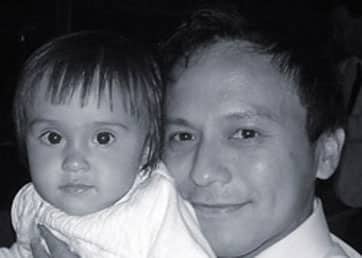

.jpg) Click here to watch the recorded Web cast: http://www.ustream.tv/recorded/6507846
Click here to watch the recorded Web cast: http://www.ustream.tv/recorded/6507846
(WOMENSENEWS)–Better prenatal care won’t be enough to close disparities in maternal mortality or infant health, says a leading researcher.
Instead, Dr. Michael Lu, an associate professor in UCLA’s School of Public Health and its David Geffen School of Medicine, argues for taking a "life course perspective" on women’s health and renewing public attention to mothers and their communities.
A key element, he says, is elevating policy interest in women, who often rank below their progeny.
"It’s putting the M back in MCH," said Lu. "It’s putting the maternal back in maternal-child health research."
The premise is fairly simple, added Lu, who was born in Taiwan to parents who did not attend college. Lu’s mother dropped out of school in the fifth grade to work in a factory after her father died.
"If you want to have healthy babies, you have to start with healthy mothers, healthy families and healthy communities," he said.
A recent flurry of research shows higher maternal mortality rates in the United States compared to other industrialized countries. But there are few theoretical explanations for the problem and no solid answers about why African American women, in particular, are more adversely affected.
"Racial and ethnic disparities in maternal health and infant mortality have been a persistent problem that has not gone away" said Lu, a pioneer of a new way of approaching how to view and treat maternal health in this country. "In the context of all the discussions and deliberations about health care reform, it’s time to do some rethinking about how we can close that gap."
The Life Course Perspective
Lu says taking a broad look at women’s overall health–the so-called life course perspective–is indicated by decades of research into the nine months of pregnancy that cannot produce clear steps for narrowing disparities.
"We can’t expect prenatal care to eliminate all of the disadvantages and inequities that accumulate over the life course," he said. "We have to do much more–not just in health care but also in policy–to create conditions in which all mothers and babies can be healthy."
By the time a woman becomes pregnant she may have already missed a critical window of opportunity to give her baby the best start in life, says Lu, who maintains an obstetrics and gynecology practice along with his active research and teaching efforts.
The life course perspective calls for a deeper dive into the complexities, health factors and stressors in a woman’s lifetime. It also calls for strategies to create healthier conditions for mothers and babies, including improving affordable fresh food options, building stress resilience strategies and boosting the immune system.
A recent study by Amnesty International, "Deadly Delivery," finds that deaths from pregnancy and childbirth in the United States have doubled in the past 20 years: from 6.6 per 100,000 live births in 1987 to 13.3 deaths per 100,000 live births in 2006. The study used data from the Organization for Cooperation and Development and the World Health Organization. Pregnant women and new mothers are dying because of "systemic failures" in the current health system, the Amnesty report says.
More Alarming for Black Women
The situation is far more alarming for African American women, who are three to four times more likely to die during childbirth than white American women. Higher social status is no protection. Even wealthy black American women have a higher rate of mortality during childbirth than wealthy white women.
The racial disparities persist even when taking into account differences in income and education, prenatal care and behaviors such as smoking. Right now, possible genetic explanations are being studied but they are unlikely to fully explain these disparities, Lu said.
Lu’s vision began taking shape over 10 years ago.
While still a medical school student, Lu teamed up with several students from UC Berkeley to create the Suitcase Clinic, a traveling medical service for homeless people operated under faculty supervision. Lu quickly learned that health care wasn’t always the highest priority for these patients. It was the "aha" moment in his career, revealing that good health care requires an array of other social amenities.
The Suitcase Clinic, which still thrives today, then brought in legal and psychological counseling services from the school along with volunteer optometrists and beauticians.
The experience left Lu convinced that prenatal care could not be the sole means of improving the health of mothers and infants.


